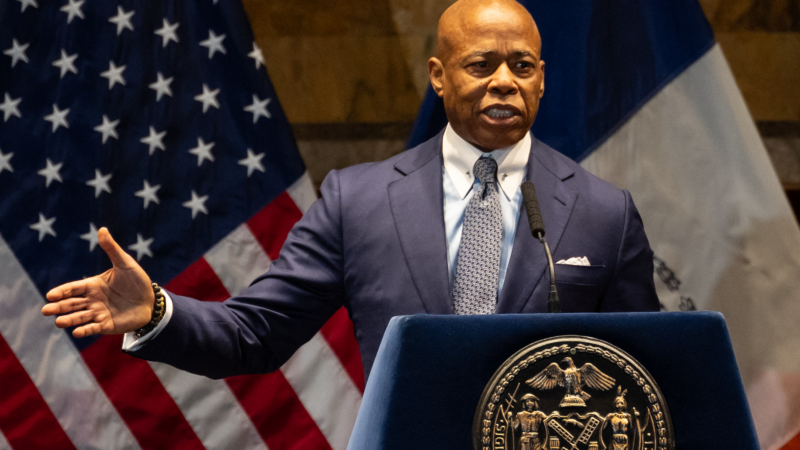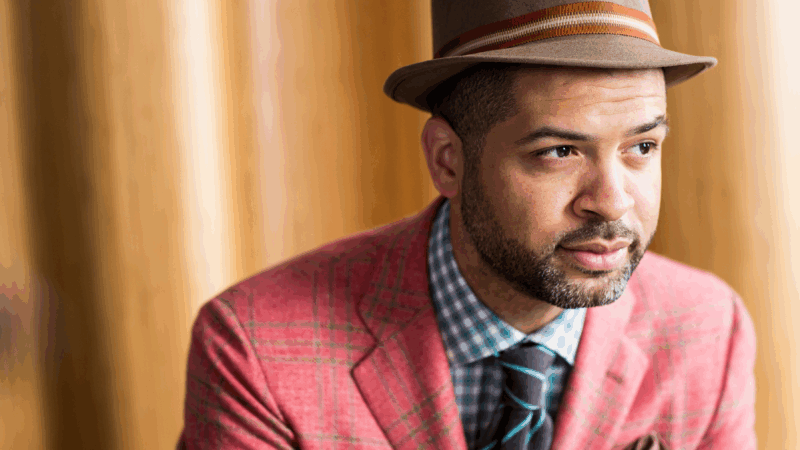Judge deliberates after Justice Department pushes to end corruption case against NYC Mayor Adams
Attorneys for the U.S. Justice Department and Mayor Eric Adams appeared before federal Judge Dale Ho Wednesday afternoon in Manhattan, pressing their case that five federal corruption and bribery charges against Adams should be suspended.
Normally such requests are granted readily when prosecutors and defendants are in agreement, but Ho asked a lengthy series of questions about the DOJ’s motives for putting Adams’ case on hold.
“This is a very complicated situation, at least from where I sit,” Ho said. At the end of the hearing, he declined to rule from the bench but said he would issue a ruling soon.
The DOJ moved last week to request that its sweeping criminal case against Adams, launched by the Justice Department under the Biden administration, be shelved.
Top Trump administration officials have signaled they expect Adams, a Democrat, to help the White House crack down on migrants living in New York City without legal status.
In the courtroom today, the DOJ’s acting Deputy Attorney General Emil Bove asserted repeatedly that Ho possessed only limited discretion to review the request for dismissal.
Bove, who once served as attorney for President Donald Trump, also said the decision to suspend the case was motivated in large part by “national security” concerns and a desire for Adams to pursue migrants in New York City who lack legal status.
Under questioning by Ho, Bove said canceling a criminal trial would allow Adams to “get back to work unburdened and unhindered.”
The DOJ’s dismissal memo, sent on Feb.10, said bluntly that a criminal trial would interfere with Adams’ ability to carry out one of the Trump administration’s key policies:
“[T]he pending prosecution has unduly restricted Mayor Adams’ ability to devote full attention and resources to the illegal immigration and violent crime that escalated under the policies of the prior administration,” the DOJ’s memo asserted.
Critics say Adams case skewed by politics
Critics inside the DOJ suggested the decision to suspend the case came as part of an improper “quid pro quo.” At least seven Justice Department attorneys in New York City and Washington, D.C., resigned rather than go along with the deal.

Answering Ho’s questions under oath, however, Adams repeatedly said there was no explicit trade-off, linking his cooperation with the Trump administration on immigration enforcement in New York City to lenient treatment by the DOJ.
Ho also noted that the DOJ is reserving the right to indict Adams again on these charges in the future. Asked whether he felt threatened or pressured in any way, Adams answered, “No, your honor.”
Ho also noted in court that three former federal prosecutors filed a legal brief urging him to reject the DOJ’s bid to suspend the case against Adams. They argued that the move reflected improper political influence over a criminal case.
“Federal prosecutors should not make criminal charging decisions based on political associations, political activities, or personal allegiances,” they wrote.
During court proceedings on Wednesday, the DOJ’s Bove dismissed that claim as “partisan noise.”
Speaking with reporters before the hearing, Adams sounded upbeat, describing the proceedings as “part of the process.” In recent days, he’s made frequent public appearances throughout the city, promising progress on infrastructure, the economy and other priorities.
While Adams’ legal fate hangs on Ho’s ruling, his political future also hangs in the balance. Four of his deputy mayors resigned this week because of Adams’ scandals and his deepening ties to Trump’s immigration policies. Adams also faces a fiercely-contested Democratic primary in June followed by the general election in November.
Meanwhile, New York’s Democratic Governor Kathy Hochul, long considered a political ally of Adams, is weighing whether to use her authority to remove him from office.
Hochul met with top political and civic leaders on Tuesday in Manhattan to discuss Adams’ political future. She hasn’t yet announced her decision.
Jabari Peoples’ family, community, pushes for release of police body cam footage
Pressure is mounting on Homewood and state officials over the shooting death of Jabari Peoples by a Homewood police officer last month. Protestors took to city hall on Tuesday evening to demand officials release body-camera footage from the shooting that killed the Black 18-year-old.
Linda Yaccarino steps down after a turbulent two years leading X
Yaccarino, a traditional business executive, was in many ways a strong foil to the mercurial and controversy-courting Musk. She did not cite a reason for her departure.
Composer and pianist Jason Moran is latest departure from Kennedy Center
Another departure from the Kennedy Center: Composer, pianist, educator and bandleader Jason Moran announced on social media that he is no longer the artistic director for jazz. Moran joined the Kennedy Center in 2011.
After Iran’s war with Israel, questions return about Khamenei’s potential successors
After the 12-day war in June, the issue of who will succeed Iran's longtime supreme leader, Ayatollah Ali Khamenei, has become more urgent.
U.S. measles cases hit highest level in 33 years, CDC reports
The U.S. has hit an unwelcome milestone in measles cases this year. The CDC is reporting 1,288 cases across the country. The disease was declared eliminated 25 years ago.
10 songs that were hyperpop before the subgenre was born
To commemorate 10 years of SOPHIE's debut, World Cafe put together a mix of "proto-hyperpop" tracks.








